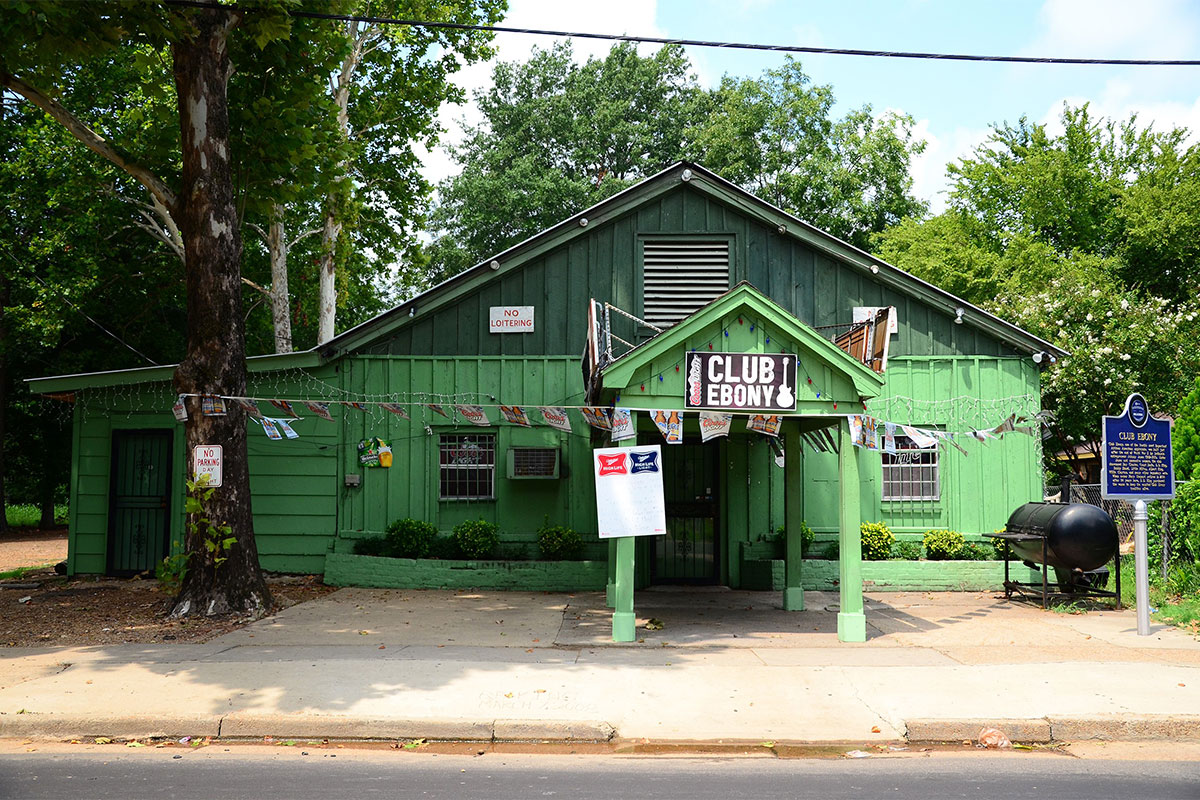The B.B. King Museum and Delta Interpretive Center in Indianola, Miss., tells many intertwining, Mississippi-steeped stories through the life and lens of one of the state’s most beloved and most talented sons. A major new grant will help add one more chapter, with an exhibition on the nearby Club Ebony, now undergoing restorations and renovations. Club Ebony was a major stop on the original Chitlin’ Circuit, a cross-country network of venues where famed Black performers entertained crowds in the era of racial segregation and beyond.
In Utica, a new grant to the Mississippi Center for Cultural Production—known more familiarly as Sipp Culture—will spur development of a 15-year strategy, support its comprehensive work with Southern artists, and fold into its project to rehab a Main Street space in town into a cultural center and commercial kitchen.
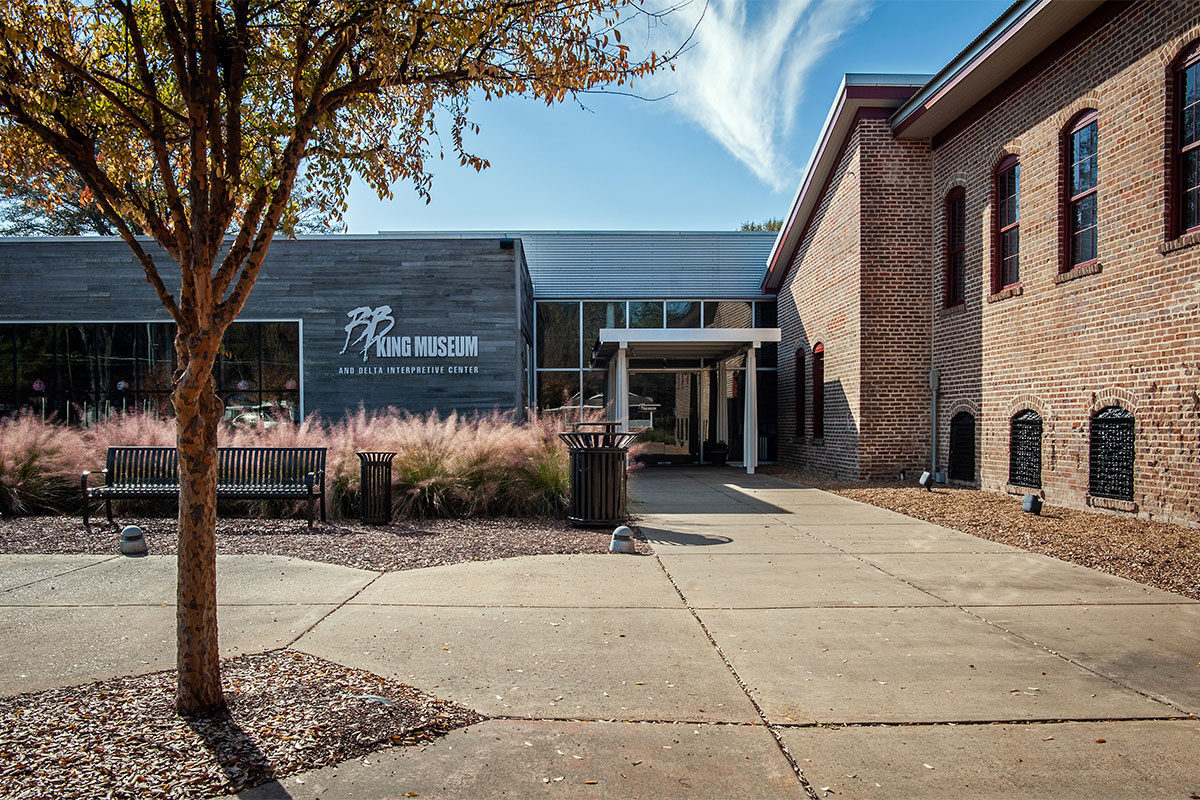
South Arts selected the two Mississippi institutions to receive the grants, $300,000 over three years, in partnership with the Ford Foundation. Funds are part of a $6 million Southern Cultural Treasures initiative supporting Black, Indigenous and People of Color-led arts and cultural organizations across the southeast U.S. Seventeen organizations spanning nine states, chosen from more than 240 applications, received grants in this initiative.
In Mississippi, the B.B. King Museum and Sipp Culture fill vital roles in their respective small towns as hubs for arts and culture, education, and outreach.
“It’s very significant, especially when you think of an organization such as mine, that’s in the rural Mississippi Delta,” B.B. King Museum Executive Director Malika Polk-Lee said, adding that the accolade is one of the few grants with funds to help cover operating costs. That flexibility was particularly attractive and key for the capacity-building, planning and sustainability that can help small museums and cultural centers grow and move forward, she explained.
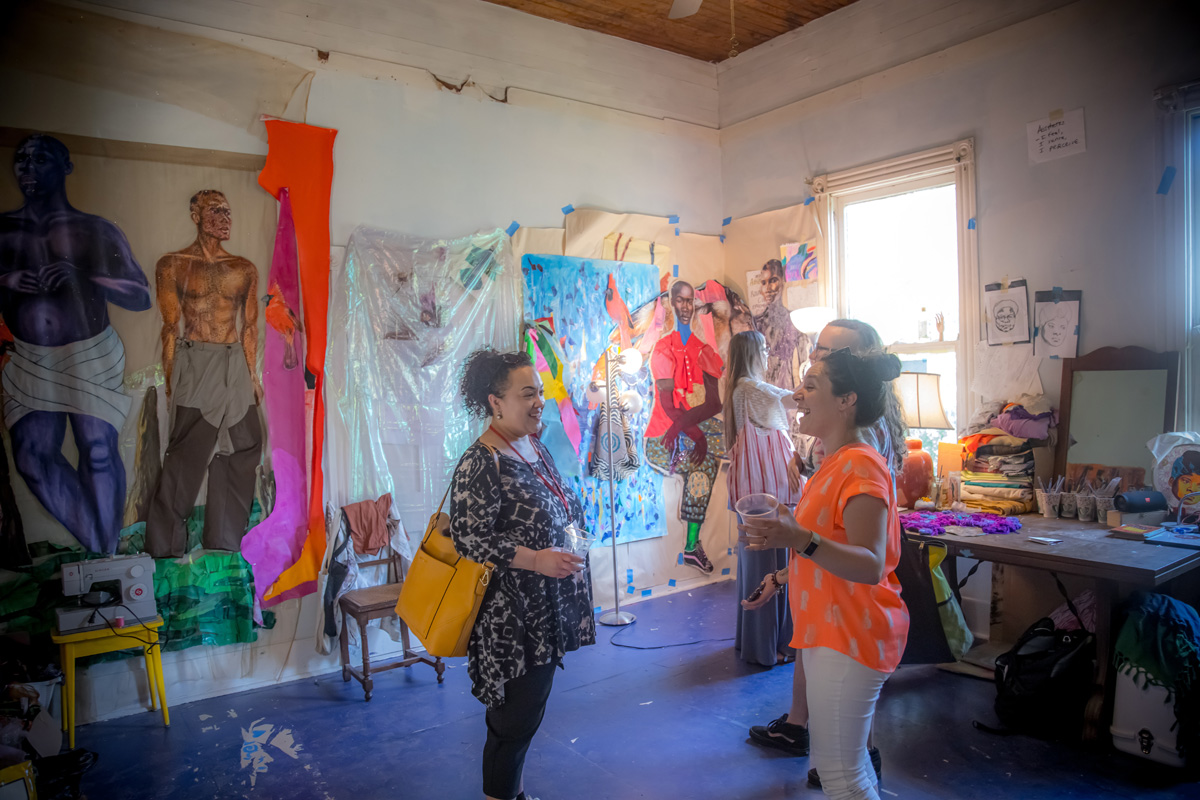
“We were just over the top, elated about being chosen,” Polk-Lee said. “It’s going to allow us to do some things that we have wanted to do and now we’ll be able to do.”
Securing staffing was first on her to-do list with grant funds, wanting to offer competitive wages in this tight labor market. “Having the right staff allows you to do the work that you need to do in your community,” she added.
“We’re not just a museum here in our community,” Polk-Lee said. “We are a community center, we’re a cultural institution, we are the welcome center, and we are an education and outreach center.”
The museum has programs running the gamut from those surrounding cultural arts, music and literacy to health, history and youth leadership—all vital for an underserved small town in the poorest region of a poor state.
“Any cultural or education or extracurricular or arts programs that you can bring to the area, they are needed and they are a help, just because of where we are,” she said. “… Through those programs, I actually get to see how we effect change in our community.”
‘Cherry On Top’
Club Ebony, which B.B. King bought in 2008 and gifted to the museum in 2012, hosted the musician’s annual homecoming concert and featured a Who’s Who roster of top Black entertainers. The nightclub is a five-minute walk and two-minute drive from the museum, and its vibrant history stretches back to the late 1940s.
In addition to B.B. King, other artists such as Sam Cooke, Howlin’ Wolf, Chuck Berry, Ruth Brown, Ike and Tina Turner, The Red Tops, Ray Charles, Little Milton, Bobby Blue Bland, Bo Diddley, Albert King, T-Bone Walker, Willie Clayton, James Brown, Denise LaSalle, Dorothy Moore and many more have performed there.
“This was where anybody who was anybody in the music business played,” Polk-Lee said. “When you’ve got that kind of history, it’s a valuable part that needs to be preserved.”
Once the museum received ownership of Club Ebony in 2012, the nightclub closed and underwent minor renovations before reopening, though it continued to operate under non-ideal conditions until 2020, when concerns over COVID-19 led the museum to close the club, the executive director explained.
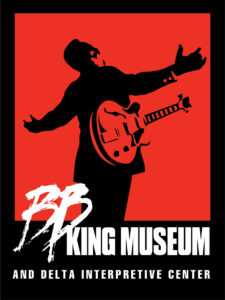
“When we closed it in 2020 for the pandemic, we knew we wouldn’t be able to open that club back up without doing some major structural renovations to it,” she said, further explaining that they intended to make the building more structurally sound and ADA compliant. “We’re keeping as many of the historical elements to the club that we can.”
Private funding in December 2021 spurred the start of new renovations, and other fundraising efforts have helped push the project forward.
“Getting this grant was just like the cherry on top to help us finish the project,” she said. “We’re really excited about it, because this is an extension of our exhibit. It’s an extension of Mr. King’s story also because for over 40 years, Mr. King came back to Indianola and did a private concert for the public, free of charge. … It was his way of giving back to his community. So, it’s a part of his story, and it’s a part of so many other musicians’ stories when you think about the music history there.”
A full exhibit space inside the building will relay Club Ebony’s history and role within America’s musical landscape, including explanations on the artists who performed at the club and other facets of its significance.
“We will also use it to bring music to the community,” Polk-Lee said. “It gives us a music venue for our town, which is lacking. And so, it’ll be a cultural experience that we’re able to offer to the city of Indianola, Sunflower County and all the surrounding areas here in the Delta.”

She added that reopening Club Ebony will also provide a role in economic development by creating jobs.
Southern Cultural Treasures grant funds will be used to develop the exhibit, now in the design phase with fabrication and installation. “They will complete this exhibit for us, which is a very important component of this restoration/renovation,” Polk-Lee said. A Club Ebony grand re-opening celebration for Club Ebony is planned for June 1 through June 4, 2023.
Sipp Culture: Organizing Food-Focused Community Initiatives
Mississippi Center for Cultural Production Co-Founder and Co-Director Carlton Turner sees a key benefit in the multi-year nature of the grant from South Arts.
“Anytime you can get multi-year funding of this nature … it allows you to do planning of your work over time. You’re not having to feel like you’re on a short time frame, in having to replace those funds next year,” he said. “Being able to see work over the course of three years really should be the minimum in terms of these types of projects. In terms of our organization, $100,000 goes a long way in Mississippi.”
They can put those yearly funds to use by strengthening Sipp Culture’s infrastructure and providing more support for day-to-day operations, Turner explained.

Sipp Culture operates in food and story, Turner said, working in arts, agriculture and community development. Its programs include an artist residency in Utica that provides artists from a five-state region of Mississippi and neighboring states with funding, mentorships, consultations, and space to develop and deepen their bodies of work.
“We also do direct funding to artists just to continue to support the cultural landscape in the same region,” he added. Grants range from $500 to $5,000.
Sipp Culture’s agriculture program trains young and new farmers in sustainable, regenerative methods and operates a 17-acre green space that uses 1.5 acres for growing produce and sports a 1,800-square-foot greenhouse. Development for a commercial kitchen and cultural center in its home base of Utica is the big project Sipp Culture has on the horizon, with hopes to start renovations next spring and to open in 2024. Grant funds will enable programming for the multi-purpose community space to host gatherings and serve as a conduit for fresh, direct-to-consumer produce and farm-to-table food experiences.
“Our Main Street has seen a tremendous amount of disinvestment over the last 20 years and has gone from being a place of cultural production and commerce to being a place that is struggling to maintain its identity,” Turner said. The cultural center and commercial kitchen can bring back an anchor institution to the town’s center, he claims.
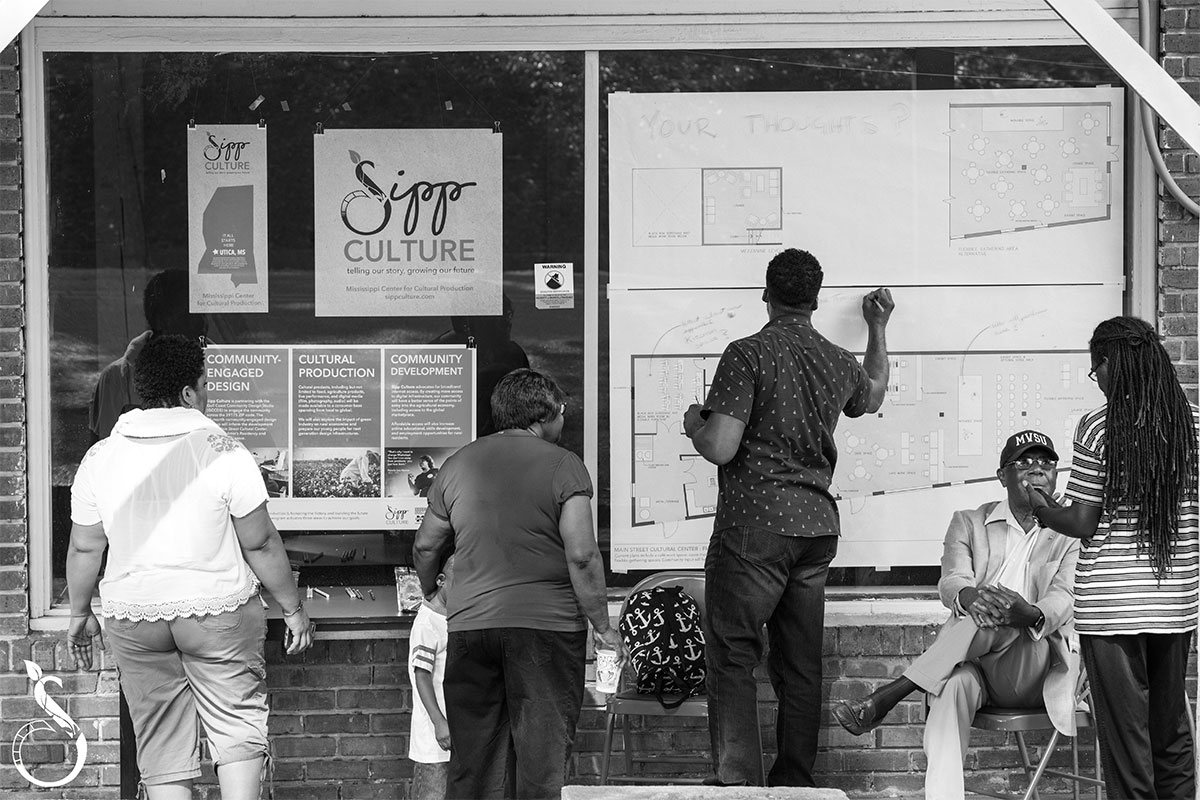
Sipp Culture is also partnering with the Jackson Hinds Comprehensive Health Center and the town of Utica in a community-based art project, culminating in 2024, that is part of National League of City’s One Nation/One Project.
“Our work is about improving the conditions of our community through building our community’s agency and muscle to figure out things for themselves, and to organize together to think through and strategize for solutions to problems around infrastructure and community development,” Turner said. “We mostly focus on food at the moment, but we hope that we’re able to build a rationale for that work to expand to other areas that are important to our community in the future.”
One recent food-focused event that Sipp Culture organized was the Blues and Greens Concert that featured music artist Terry Harmonica Bean. “We cooked a few pots of greens from our community farm and we had front porch blues and made an evening from it,” Turner said.
“We’re a fairly new organization. We’ve been around for almost six years, and we’re interested in understanding what this work looks like on a 20-year trajectory,” he said of a 15-year plan that this new grant will support, now in development.
The plan comes at a point when they are able to reflect on what they have learned in the first five years about the organization, their community and work needed in the region so that they may build a more comprehensive strategy for future development.
“There’s not a deep bench of funders in Mississippi, period, for arts and culture,” Turner said, noting that Sipp Culture is fortunate to have relationships with foundations that have long-tracked the work. Pulling from a national pool of funding is historic in their community, such as civil-rights work that people outside of Mississippi have funded, as well as the Utica Jubilee Singers of Utica Normal and Industrial Institute (now the Utica Campus of Hinds Community College) traveling around the country and beyond, raising money for the small town’s historically Black college.
“We have had the benefit of good resources to do this work,” Turner said, “but I definitely know that in order for us to continue, we will continue to need investments coming from outside our community.”
For more information on the B.B. King Museum and Delta Interpretive Center, visit bbkingmuseum.org. Learn more about the Mississippi Center for Cultural Production, or Sipp Culture, at sippculture.org.

